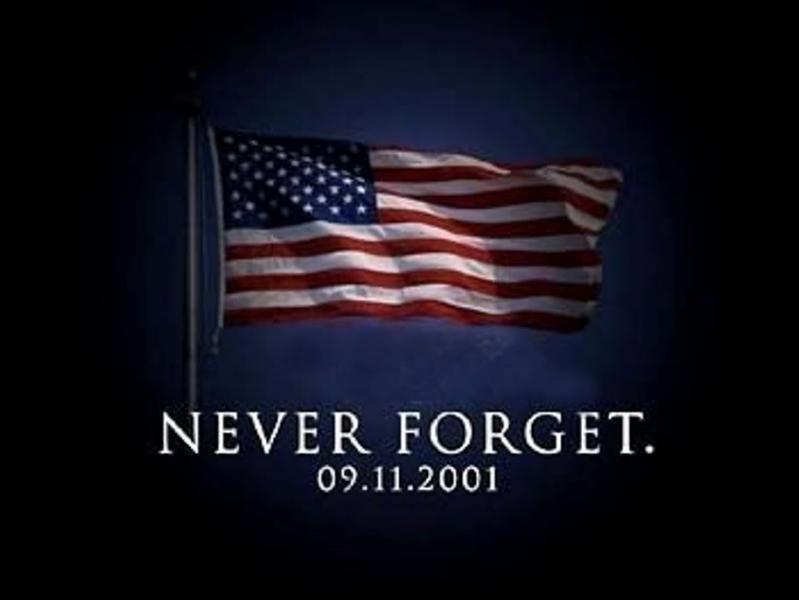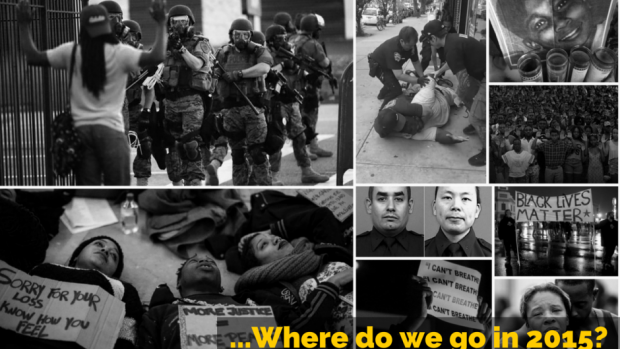2015 will not be business as usual for the country, perhaps the world. Like you, I was shocked to hear of the 170 cities in the US that protested with Ferguson residents, and more broadly Tokyo and London, when the no-indictment decision was returned. While the world was still watching, it happened again in New York, and now there are two on-going investigations in Ohio.
It seems as though we are on a collision course on how we discuss race and ethnicity in the US. As the body of Christ, we must not wait to see how the conversation plays out. We must be leaders, facilitators of it.
Let me give four New Years Priorities for helping heal and lead well in 2015 in our multiethnic communities:
 1. Acknowledge the Past.
1. Acknowledge the Past.
There is a troubled history of race in the United States. While much of the tension remains between the Black and White communities, it also includes our Asian, South Asian, and Latino sisters and brothers. Much like what we see in the Old Testament, the laws in our country were changed but the hearts of the people are very much still a work in progress. Too often we avoid the past rather than learn from it. I recently read a paraphrased quote from Richard Rohr which said, “If the pain in our past isn’t transformed, it is transferred to our future.” Much of the problems we see today with race relations are because we have yet to deal biblically and sufficiently with wounds of long ago.
I was a sophomore in college during the Septemer 11 attacks. Every year, we pause to remember as a nation what occurred that day. Social media is filled with photos and hashtags with the same quote, “Never forget.” The past cannot be swept under the rug. It must be stared in the face, uncovered, cleaned, and the wounds allowed to heal. It is ok, with love, to say many in the generations before us did not love each other well and have not given healthy models for us to follow.
Let us never forget that there was a time in our country when:
There also needs to be an acknowledgement of wounds in recent history:
- Has trust been broken on your team?
- Do your leaders have a different opinion/perception from the rest of the team?
- Has there been silence on recent issues that has broken cross-cultural trust?
There must be both a celebrating of how far we have come as well as a lamenting of the pain of the past.
(A special word to and for the White community: In acknowledging the past, let’s be sure to affirm people in this group who made tremendous sacrifices in helping other cultures achieve freedom. All ethnic groups have positives and negatives. Let’s not only highlight the negatives for them.)
There must be a celebrating of how far we have come, but a lamenting of the pain of the past. We see this in Nehemiah 8-9 after the leaders rejoiced they rebuilt the walls of Jerusalem, they also wept and confessed the sins that permeated throughout the country. Likewise, there has to be an acknowledgement of the wounds in the country, in our community, in our churches, in our organizations.
We can acknowledge the past by hearing each other’s stories, sharing our experiences or the experiences of our parents. We must move beyond statistics and reports to seeing faces and families who have been affected by past decisions. Do some research to find out when segregation ended on your campus or in your city—not by law but by fact or implementation.
2. Evaluate the Present.
History records that in April, 1912, after the Titanic hit an iceberg, the band onboard decided to play music from the deck to help calm the passengers. (This was also depicted in 1997 film by James Cameron.) While their efforts to bring a measure of peace to the situation were very noble, the band chose to ignore the brutal reality of the situation: the ship was sinking.
Peace is incredibly important, but peace that does not address or began to solve reasons for the discord is not helpful. There must be a call for peace, but peace must also be accompanied with justice. Not a peace that attempts to return situations to “normal,” but justice that seeks to stem the tides of injustice that have led the unfolding chaos we see today.
Let’s not speak over or run past the wounds, tears, and cries of our hurting friends and communities. Trying to calm people on a sinking ship is not the best course of action. Luckily, we aren’t on the Titanic, so let’s drop ineffective tools and evaluate where we actually are and what needs to change.
I believe firmly the past is a roadmap for the present. It demonstrates how we got where we are today. After acknowledge the past, we need to evaluate the present. Systemic injustice does exist in the United States. Economic disparities are present and growing. They aren’t just statistics. They are people. They are our students, our neighbors, our co-workers, our spouses, our in-laws, and if we don’t do something, our children.
Here are four ideas to let this sink in:
- Take a tour to a side of town you don’t frequently visit. Pay attention to how the road changes (where it goes from paved to rough or vice versa).
- Google Schools in low & high-income communities to see the lack/abundance of resources.
- Google your campus to see enrollment, retention, and graduation rates across ethnicities.
- Do an inductive study of your ministry. What ethnics groups are not represented on your team? In your area/region? For how long?
3. Change the Future By Making a Concrete Action Plan Now
 Choose a systemic issue you will dissolve on your team. “It’s systemic” will not be an acceptable answer in 2015. (It’s hasn’t been acceptable in the Black community for years.) Being underfunded, lack of ethnic minority leadership beyond the ground level, decreasing ethnic minority involvement on the ground and in leadership can no longer be dismissed as a systemic issue as a means to avoid making incremental and immediate change.
Choose a systemic issue you will dissolve on your team. “It’s systemic” will not be an acceptable answer in 2015. (It’s hasn’t been acceptable in the Black community for years.) Being underfunded, lack of ethnic minority leadership beyond the ground level, decreasing ethnic minority involvement on the ground and in leadership can no longer be dismissed as a systemic issue as a means to avoid making incremental and immediate change.
Just because an issue is 'systemic' does not we can't seek incremental and immediate changes. Make a concrete action plan now.
For me to say the situation “is systemic” means it benefits me, not you, and is too costly to change. That’s not the type of Christian community we want to promote. Systemic injustice is too difficult for anyone to tackle on their own. So attack it team—style as an Area or as a Region.
Here are some practical steps for a concrete action plan:
For Staff:
- Creating an account for underfunded staff that your Area Team or Region gives towards.
- Diversify where you meet for team meetings and meals. Move the gathering to the inner city or to a part of town that is culturally affirming to one of your staff or to a location of the culture you want to reach. You support a local business and create learning environments through immersion and displacement.
- Become proactive learners as you would in any other hobby/field of study. Don’t rely on the staff of a particular ethnicity to be your only source of learning. (Look for resources from Dr. Brenda Salter-McNeil, Dr. Carl Ellis, Dr. Soong Chan-Rah, Dr. Christena Cleveland, and Pastor Bryan Loritts to name a few.)
For Students:
- Create ethnic-specific space for White students. They need gathering places to discover and be affirmed in their ethnicity like everyone else.
- Go into every building on your campus. If you are looking for an ethnic group, go find them! Buy them food, bring games (that they know how to play), bring music (that they listen to), and build relationships.
- Diversify your speakers, songs, games, and MCs for your large groups. (Students on predominately White campuses whose cultures are rarely acknowledged will not sign up for a large group where they experience the exact same thing.)
- Invite students across ethnicities to do joint mission trips together.
- Invite students and staff to consider “local displacement”—go to a church you wouldn’t normally go to for a month.
4. Be Prepared for the Next Racially Charged Event: How/When/Where You Should Respond
As much as I hope it won’t happen again, we will see more of these events until the Gospel transforms our country.
Here are some tips on how to prepare:
If something remains in the news long enough for school officials or the President to have to respond, you should start preparing something as well.
- Create a culture of addressing issues on race and ethnicity apart from major crises. Build enough trust to where you won't have to speak to everything. At your large/small groups & prayer meetings, pray for events weekly, in real-time.
- Look for the “Kairos moments.” When a confluence of events comes together for a unique time or season, you should begin thinking about how to verbally and practically respond. (Ferguson isn’t about Ferguson. It simply unearthed the current of pain beneath the surface.)
- If the something remains in the news long enough for school officials or the President of the United States to have to respond, you should start preparing something.
- Speaking includes a social media presence. For example, regardless of your opinion of events in Ferguson, a great brief response could be: Saddened by the death of Mike Brown & racial turmoil in Ferguson; Praying for the peace of Christ and His Justice. Saying something is better than saying nothing.
- Responding includes a ministry of presence. Go to a large group, small group. A Staff Director should be present at the following large group or ethnic-specific small group of the offended community. If a cross-cultural incident happens at an IV function, an IV Staff and/or Staff Director need to be at the next gathering.
- Create a scale to evaluate if/when you will respond.
- What’s the level of outrage? A person, a community, the campus, your area, your region? Evaluate the past and decide, next time, my voice/presence can help here.
- How many times has this happened? When's the last time you responded?
- Create a timeline. How long is this been happening, discussed, or in the news? A day/week/month?
- Check-in with staff of the offended culture early to see if a response is needed. As leaders, we don’t hear about everything in real-time and will rely on our staff share events with us. However, if we hear of a cross-cultural event that is gaining momentum, proactively lead by reaching out to staff to check-in with them. If your current circles of influence of information-gatherings do not give access to those types of issues (i.e. you, your community/friends don’t find out about Ferguson-like events until months later), consider expanding your networks. Began checking news, magazines, leaders on social media that cover diverse events.
- Go to events rather than creating them. For example, go to Ferguson/NY events on campus wearing IV/chapter shirts.
These are all suggestions. Some you may agree with. Some you may challenge. None of these are in stone. They are actions I have taken, I wished I would have, that I saw my leaders do, and what I hoped my leaders would have taken. This is not about perfection, but progress.
2015 is coming.
Let’s meet it head on.


